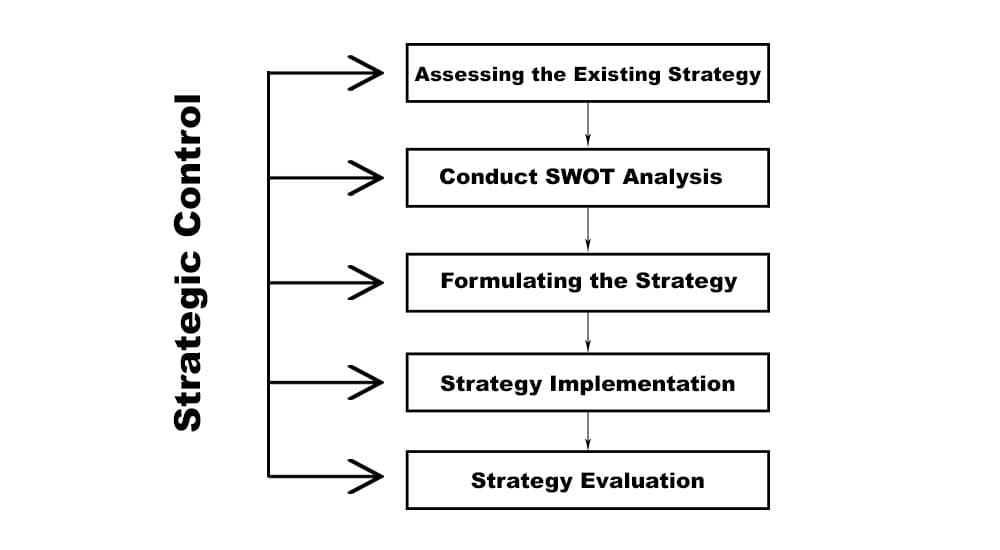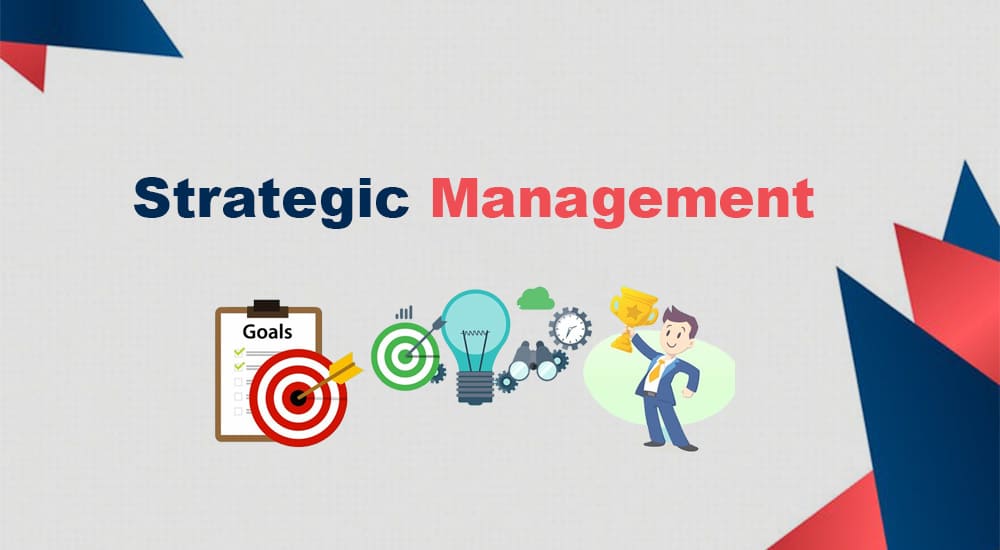Definition: Strategic management is an ongoing process of planning, executing, and then monitoring and controlling the process to ensure the business achieves its objectives.
The business environment is dynamic, and organizations need to review the current situation and adjust their strategies to stay ahead of the competition.
Strategic management provides direction for an organization, its staff and provides an opportunity for management to review their future plans. It is a continuous process, and monitor and control organization activities result in better efficiency and higher employee morale. It makes the organization proactive instead of reactive.
Strategic Management Process

Strategic management has five processes:
- Assessing the Existing Strategy
- Conduct SWOT Analysis
- Formulating the Strategy
- Strategy Implementation
- Strategy Evaluation
#1. Assessing the Existing Strategy
Here, organizations review their existing strategy to see if it is optimal. If not, they can tweak it to adjust to the current market conditions and environment.
In this phase, organizations define their strategic mission, strategic vision, and strategic objectives.
#2. Conduct SWOT Analysis
SWOT stands for Strengths, Weaknesses, Opportunities, and Threats.
Here, businesses analyze their strengths and weaknesses. Afterward, they see the external opportunities and threats.
Strengths and weaknesses are internal factors, while opportunities and threats are external.
Organizations can also use balanced scorecards to help find business areas that need improvement. BSC breaks the performance into four legs:
- Learning and growth
- Business processes
- Customer perspectives
- Financial data
Organizations review these areas to find areas for improvement.
#3. Formulating the Strategy
This is a strategic planning process. Here, the organization defines the corporate level, business level, functional level planning, and then strategic implementation plan.
The strategic implementation plan explains how an organization will carry out actions and tasks to achieve organizational objectives.
#4. Strategy Implementation
This is the key phase of strategic management, and all activities, tasks, and operations are performed here.
Here, businesses transform strategies into practices. They develop the system and structure, manage employee behavior and implement the assigned tasks according to defined roles and responsibilities.
#5. Strategy Evaluation
This is the final stage, where businesses analyze and assess their strategies and make necessary adjustments.
Based on the evaluation result, they can recommend new strategies, action plans, etc.
Roles of Organizational Culture in Strategic Management
Organizational culture has a key role in strategic management. The organizational culture defines the organization’s hierarchy, employees’ behavior, how tasks and resources are assigned, interrelations among different departments, etc.
Strong organizational culture helps managers enforce instructions and motivate employees to achieve the organizational goals.
Therefore, while drafting strategies, organizations must ensure that they are suitable and align with the organizational culture.
Summary
Strategic management is an ongoing organizational process that ensures that the organization has a competitive advantage over competitors and helps the organization survive for the long term and grow.
It analyzes organizations’ strengths and weaknesses and develops strategies accordingly to provide business value to the organization. Strategic management helps organizations develop core competencies and build their business.
